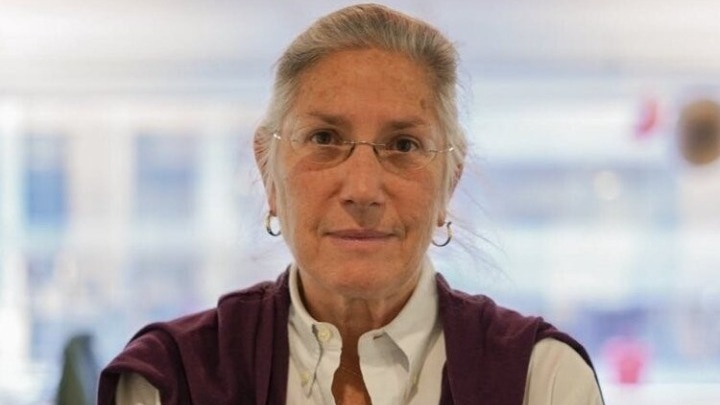United States Deputy Special Envoy for Climate Sue Biniaz expressed her enthusiasm that Greece will be hosting the 9th ‘Our Ocean’ Conference in April, and for the country’s decision to focus on marine pollution, in an interview to Athens-Macedonian News Agency (ANA-MPA) journalist Ioanna Kardara published on Sunday.
Biniaz visited Greece a week ago for preparations of the Conference (April 15-17), accompanied by the Prime Minister’s Special Envoy for the Ocean Dionysia-Theodora Avgerinopoulou, who is also Our Ocean Conference coordinator in Greece and member of the parliament’s Environmental Committee. They met with the Ministers of Tourism Olga Kefalogianni, Environment & Energy Theodoros Skylakakis, and Deputy Digital Governance Minister Konstantinos Kyranakis.
In her responses, the special envoy also underlined the importance of the US-Greece memorandum understanding to improve energy security and cooperation in the Western Balkans, a partnership that will integrate this region’s electricity markets to create a more connected and secure region and provide alternatives to Russia’s traditional gas monopoly.
The full interview follows:
ANA: The 9th Our Ocean Conference will take place in Greece. What are the topics it will focus on? Why was Greece chosen as the host country for the 9th Ocean Conference?
Biniaz: We’re thrilled that Greece will be hosting the 9th Our Ocean Conference in April and that they have chosen to focus on four cross-cutting themes: green shipping; sustainable tourism in coastal areas and islands; reduction of marine plastic and microplastic pollution; and the green transition in the Mediterranean. We are also excited to see the announcements that Greece will mobilize – in the Mediterranean and around the world – to advance ocean health and security.
ANA: The Our Ocean Conference began in 2014 as a US initiative to draw international attention to the serious threats facing the world’s oceans and to take concrete action around the globe to support marine conservation and sustainable development. What has the “Our Ocean Conference” achieved since 2014, and what are the goals and the commitments of the 9th Our Ocean Conference?
Biniaz: The Our Ocean Conference (OOC) has a unique focus on mobilizing announcements – including actions, initiatives, and policies – to address the serious threats facing the world’s ocean and to support marine conservation and sustainable development. Since 2014, the Conference has resulted in more than 2,100 announcements, worth approximately 128 billion dollars, across the Conference’s six standing areas of action: promoting marine protected areas, fostering a sustainable blue economy, tackling the climate crisis, supporting maritime security, advancing sustainable fisheries, and combating marine pollution. We are proud of this history and all that the OOC has accomplished to date.
ANA: In your opinion, what should be the actions and solutions of the states for the protection of oceans and the decrease of marine pollution?
Biniaz: Year after year, the Our Ocean Conference aims to highlight one of the most complex global challenges we face today: ensuring that our ocean is healthy, secure, and productive for future generations. The hallmark of the conference will again be announcements by participants of significant and concrete actions. We encourage all participants to come to the conference ready to announce new policies, initiatives, and actions, including those that will address the challenges of marine pollution. For example, the United States is working through a new public-private partnership, the End Plastic Pollution International Collaborative (EPPIC), to drive innovation and investment that transform the plastic lifecycle toward circular solutions, especially upstream.
ANA: On the occasion of the 9th Our Ocean Conference, you visited our country recently. What is the cooperation between the US and Greece on climate change issues?
Biniaz: The United States supports Greece’s role as it continues to diversify energy sources and routes with its Balkan neighbors, providing alternatives to Russia’s traditional gas monopoly. In general, we remain supportive of energy projects that would physically interconnect vital energy markets such as the East Med and North Africa to Europe, particularly electricity interconnections that help prepare for the clean energy transition that enhances energy security and sustainability.
Last November, the United States Agency for International Development (USAID) signed a memorandum of understanding with the Government of Greece to improve energy security and cooperation in the Western Balkans. This partnership, which comes as part of the larger US-Europe Energy Bridge, will advance collaboration between energy entities and authorities in Greece, Albania, North Macedonia and Kosovo to integrate their electricity markets to create a more connected and secure region.
ANA: The Mediterranean countries are considered to be the hotspot of climate change. In your opinion, how could they tackle the climate crisis? Are there mitigation solutions, and what are they?
Biniaz: We encourage announcements of actions to advance marine nature-based climate solutions, such as the protection and restoration of blue carbon ecosystems, like mangroves and seagrasses. These actions can help coastal communities, including those across the Mediterranean, mitigate and adapt to climate impacts by sequestering carbon and protecting coastlines.
We’re also excited that Greece has chosen to focus on green shipping. If the shipping industry were a country, it would be the 8th largest emitter of greenhouse gases in the world. There are many opportunities for the shipping sector to reduce its carbon footprint today, including reducing ship speeds, reducing idling outside of ports, and installing new technical improvements to vessels like wind-assisted technologies. We look forward to delving into these and other solutions during the conference.
ANA: How would you assess the outcomes and effectiveness of COP28 in addressing global climate challenges and advancing international climate action?
Biniaz: The UN Climate Change Conference, or COP28, in Dubai achieved significant outcomes, even historic ones. These included calling on Parties to contribute to a series of 1.5-aligned global efforts, including transitioning away from fossil fuels in energy systems to achieve net-zero by 2050; encouraging Parties to align their next set of Paris NDCs with the 1.5-degree Celsius limit; and a decision taken on day one of the COP to operationalize funding arrangements to address loss and damage from climate change. In light of the widely different interests and situations of the nearly 200 countries involved in the process, achieving global consensus on these results is quite remarkable.
ANA: With 2023 being recorded as the warmest year worldwide, and with many countries experiencing prolonged periods of significantly above-normal temperatures, how feasible do you believe it is to achieve the ultimate goal of limiting global warming to 1.5 degrees Celsius compared to pre-industrial levels?
Biniaz: We need to do everything we can to keep 1.5 degrees within reach – and that’s what nearly 200 nations reiterated at COP28. In the global stocktake decision, the world’s nations agreed to encourage parties’ next “ nationally determined contributions” under the Paris Agreement to be economy-wide, cover all greenhouse gases, and be aligned with 1.5 degree C limit on warming. It also called upon parties to contribute to a series of 1.5-aligned global efforts, including transitioning away from fossil fuels in energy systems, so as to achieve net zero by 2050.
SOURCE; ANA-MPA








